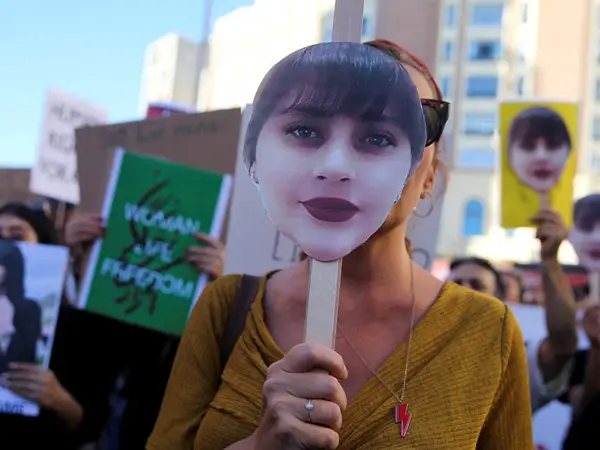Iranian officials have been trying to question whether Mahsa Amini was killed in police custody and this attempt has reached Hezbollah leader Hassan Nasrallah.
Nasrallah, whose militant movement was created by Iran in early 1980s and has been receiving money and weapons from Iran ever since, told media in Lebanon that Amini’s death was a “vague incident”, and it was a plot to weaken the Islamic Republic and create regional tensions.
“The Iranian state is a target and so any incident is exploited to incite people against this state,” Nasrallah claimed.
The nationwide protests and a wave of civil disobedience that followed Amini’s death has led to a serious challenge for the Islamic Republic. Security forces have killed more than 150 protesters and innocent onlookers in the streets, which could fuel more unrest in the coming weeks.
Any weakening of the Iranian regime would be dangerous to its proxies, such as the Hezbollah that almost fully depend on Tehran’s support.
Iranian officials first tried to argue that the 22-year-old woman arrested by the hijab police had an existing illness, which they said caused her to go into a coma in a police station.
After Iran International published her hospital CT scan showing a broken skull, this version could not be supported any longer.
On Tuesday, the chief of Iran’s Judiciary Mohsen Ejei tried to argue that Mahsa Amini was arrested in full public view. However, by all indications, she was hit in the head after she was pushed into a police van where there were no witnesses, or none that has dared to speak out.
One eyewitness who spoke with Amini in the police station told Iran International September 26 that she was complaining of pain in the head before she passed out and taken to hospital, where she arrived in a coma.
The most incredible, however, claim came from an ‘analyst’ on Iran-backed Al Manar TV in Lebanon. While the video of his remarks exists, we could not identify him.
The TV guest said that Amini was an Israeli agent because she was a Kurd with connections to Kurdish insurgent groups fighting against the Islamic Republic. Presumably, the Kurdish groups have ties to Israel, which sent Amini to Iran “with a suicide pill” and she “walked into a police station” and used the pill to kill herself so that Iran could be blamed.
These remarks are typical of diatribe and conspiracy theories the Islamic Republic and its proxies use to try to discredit those they regard as enemies or rivals and feed ideologically convenient disinformation to their followers.
Iranian President Ebrahim Raisi, Foreign Minister Hossein Amir-Abdollahian and even Supreme Leader Ali Khamenei have insisted that the government is investigating Amini’s death. But after three weeks, no official has been named as responsible for her arrest and transfer to the police station. No police officer has been suspended or arrested, while officials act expeditiously against critics and quickly “identify” anti-regime "lawbreakers," such as journalists and activists.
